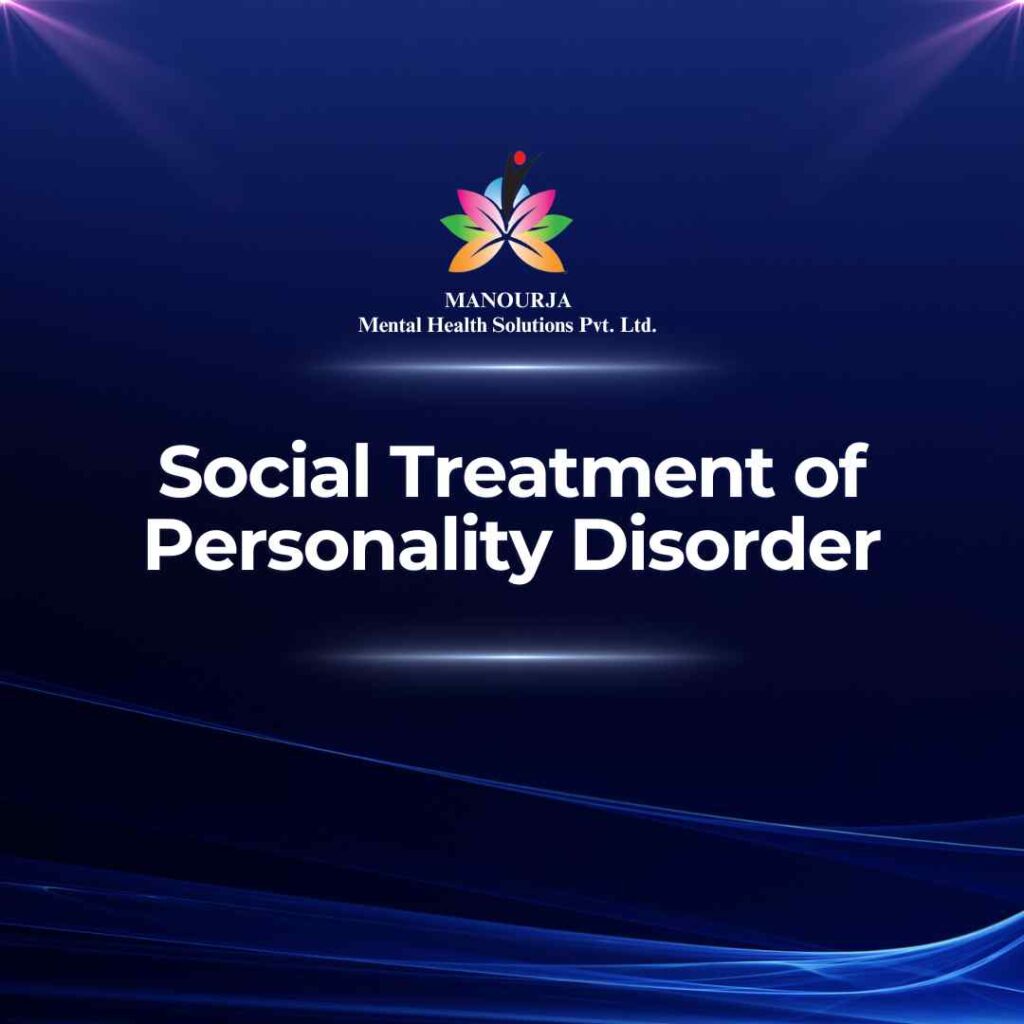Social Treatment of Personality Disorder

The treatment of personality disorders often involves a comprehensive approach, combining psychotherapy, medication (when necessary), and social interventions to support the individual in managing their symptoms and improving their relationships and social functioning. Social treatment, specifically, refers to strategies and interventions aimed at enhancing social skills, improving interpersonal relationships, and increasing social support.
Here are some key aspects of social treatment for personality disorders:
Psychotherapy:
- Group Therapy: This form of therapy provides a safe environment where individuals can interact with others facing similar challenges. It helps participants develop social skills, learn from others, and receive peer support. Group settings can also help individuals see how their behaviors affect others and how to modify them appropriately.
- Family Therapy: Involving family members in therapy sessions can improve communication and resolve conflicts within the family. It also educates family members about the disorder and how they can best support their loved one.
Social Skills Training:
- This type of training focuses on teaching individuals specific behaviors that enhance their ability to interact with others more effectively. It includes lessons on understanding social cues, improving communication skills, conflict resolution, and empathetic listening.
Assertiveness Training:
- Learning to express thoughts and feelings in an assertive, but not aggressive or passive way, can be crucial for individuals with personality disorders. This training helps them advocate for themselves in a healthy manner.
Community Involvement:
- Encouraging participation in community activities can improve social integration and provide a sense of belonging. This might include volunteering, joining clubs or groups based on interests, or participating in community events.
Vocational Rehabilitation:
- For some individuals, vocational counseling and support can be beneficial. This may involve help with resume writing, interview skills, and finding appropriate job placements that consider their personal challenges.
Social Support Networks:
- Developing a network of supportive relationships, including friends, family members, peers, and mental health professionals, is essential. Support groups specifically for personality disorders can also be incredibly beneficial, providing a sense of community and mutual understanding.
Lifestyle Modifications:
- Encouraging routines and structure can help individuals manage symptoms better. Regular exercise, a healthy diet, sufficient sleep, and mindfulness practices can also play supportive roles in overall treatment.
Social treatments are best delivered under the guidance of mental health professionals who can tailor interventions to the unique needs of the individual with a personality disorder. It’s crucial that any social treatment plan is coordinated with other aspects of care, such as medical treatment and individual psychotherapy, to maximize effectiveness and improve overall quality of life.
At MANOURJA, we believe in the transformative power of counseling. Our experienced therapists offer a safe and supportive space where you can explore your thoughts, emotions, and challenges. Through personalized counselling sessions, we’ll work together to develop coping strategies, build resilience, and achieve lasting positive change. Discover the path to a healthier, happier you with MANOURJA counselling services.
MANOURJA Rehabilitation Services
At MANOURJA, we’re dedicated to helping you in rebuild your life, after difficult times. Our rehabilitation services focus on understanding what you need to move forward, whether you’re recovering from addiction, trauma, or any psychological – social challenges. We create personalized plans, that are all about helping you, regain your strength and find hope again. With a caring team by your side, you’ll have the support to make real progress and take steps toward a brighter, healthier future
